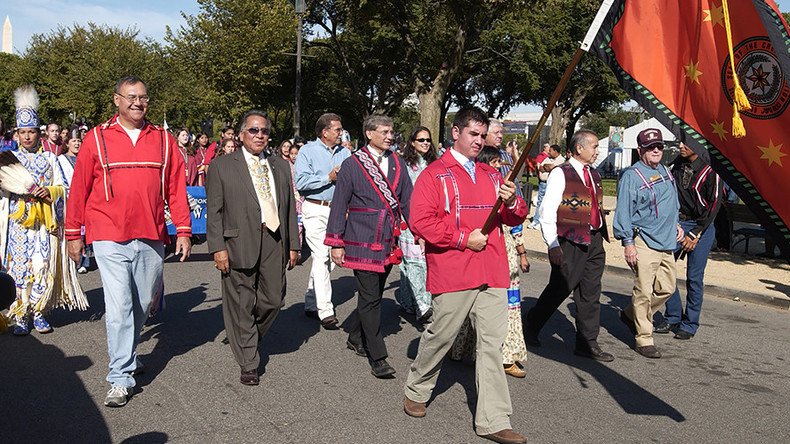Descendants of Cherokee slaves granted tribal citizenship after lawsuit

A long-standing dispute between descendants of black slaves, called freedmen, and the Cherokee Nation, who once owned them, has ended. A federal judge gave the freedmen a right to citizenship in the tribe with a ruling in a suit dating back to 2003.
US District Judge Thomas Hogan ruled Wednesday that the Cherokee Freedmen can join the second-largest tribe in the US, made up of 317,000 citizens, according to court documents.
Under the ruling, Cherokee Freedmen gain all the rights tribal citizens enjoy. This includes the right to run for office, vote in election and receive benefits, which includes tribal health care and housing, according to the Associated Press.
The ruling directly affects more than 2,800 freedmen, but an attorney for the group, John Valie, said there may be as many as 25,000 who are now eligible for citizenship, according to AP.
“The Cherokee Nation can continue to define itself as it sees fit,” Hogan wrote, “but must do so equally and evenhandedly with respect to native Cherokees and the descendants of Cherokee Freedmen,” NPR reported.
Cherokee Nation Attorney General Todd Hembree said the tribe does not plan to appeal the ruling, according to a statement, the AP reported.
“The Cherokee Nation respects the rule of law, and yesterday we began accepting and processing citizenship applications from Freedmen descendants,” he said in a statement. “While the US District Court ruled against the Cherokee Nation, I do not see it as a defeat. As the Attorney General, I see this as an opportunity to resolve the Freedmen citizenship issue and allow the Cherokee Nation to move beyond this dispute.”
The basis for the freedmen argument revolves around the Treaty of 1866, which was signed between the US government and the Cherokee based in Tahlequah, Oklahoma. This treaty states that “all the rights of native Cherokees” will be passed along to the tribe’s descendants.
Today, there are about 3,000 freedmen descendants.
READ MORE: Trump advisers propose tribes ‘privatize’ reservations
“Nobody wants to have their rights unilaterally stripped away,” said Marilyn Vann, president of the Oklahoma City-based Descendants of Freedmen of the Five Civilized Tribes, who is one of the plaintiffs in this lawsuit. “I think the judge made it clear that the freedmen people have rights just like the rest of the citizens have rights, and we can’t be removed at the whim of this chief or that chief.”
Vann laid out her vision for future relations between the two groups.
“Going forward, I am hoping that the tribe will come together and we can just be Cherokees, Cherokee people and not freedmen ... and maybe we can become the most powerful tribe in the entire country.”
While there are less 3,000 freedmen registered with the tribe, Vann believes the total number is closer to 30,000 because of the moratorium on registering with the tribe.
The Cherokee were among the several Native American tribes that owned slaves in the territories they originally inhabited, in the present-day Georgia and Alabama. In 1838, the US government forcibly relocated the Cherokee to present-day Oklahoma, in what became known as the "Trail of Tears." During the 1861-65 Civil War, the Cherokee fought for the Confederacy.
Tribal leaders had previously argued they have the fundamental right to make the decision of who is a Cherokee They stated that descendants of the freedmen would have to prove they have native ancestry to be allowed in.
The Cherokee case is "not the end of the road for the Freedmen," Vann told RT, as more lawsuits will likely be filed over claims of discrimination among the Creek, the Choctaw and the Seminole.
“As Freedmen people, we look forward to taking our place with the members of the tribe and registering our children and our grandchildren,” Vann said.














